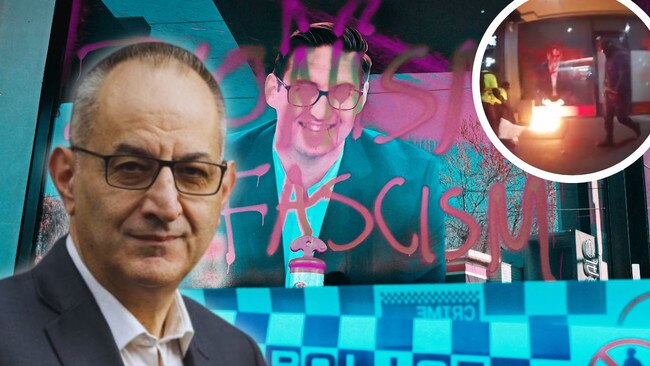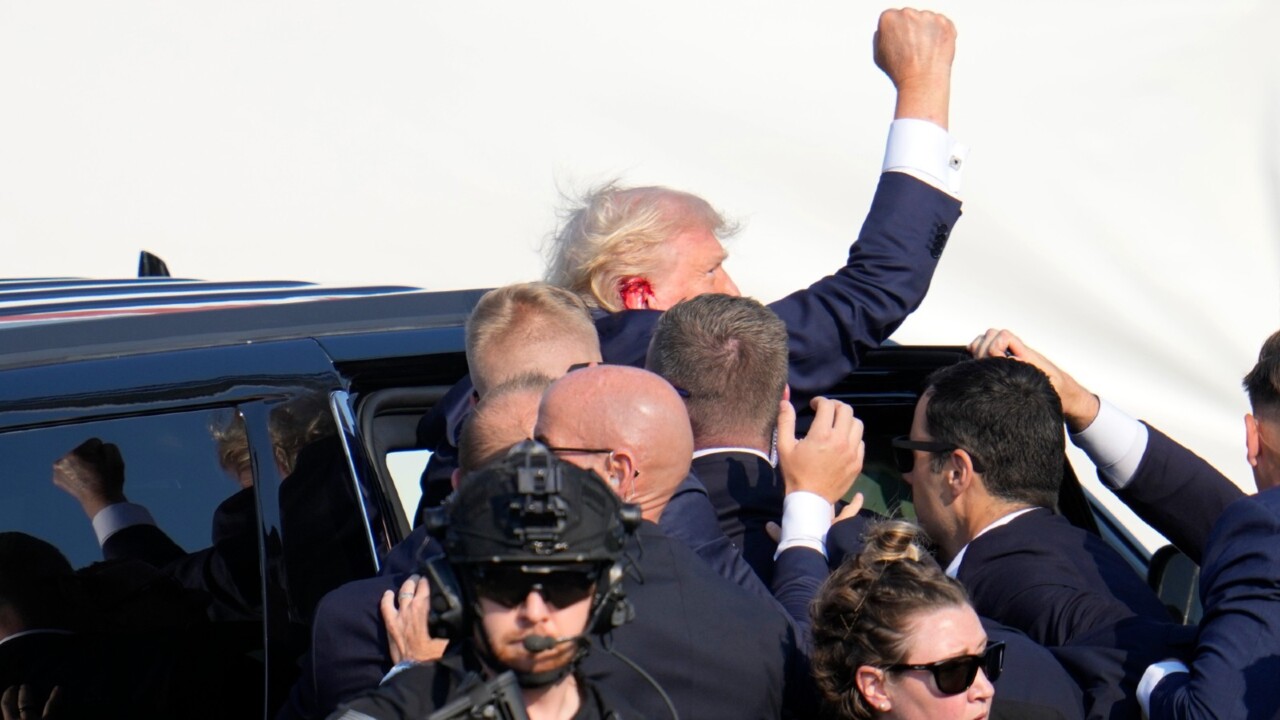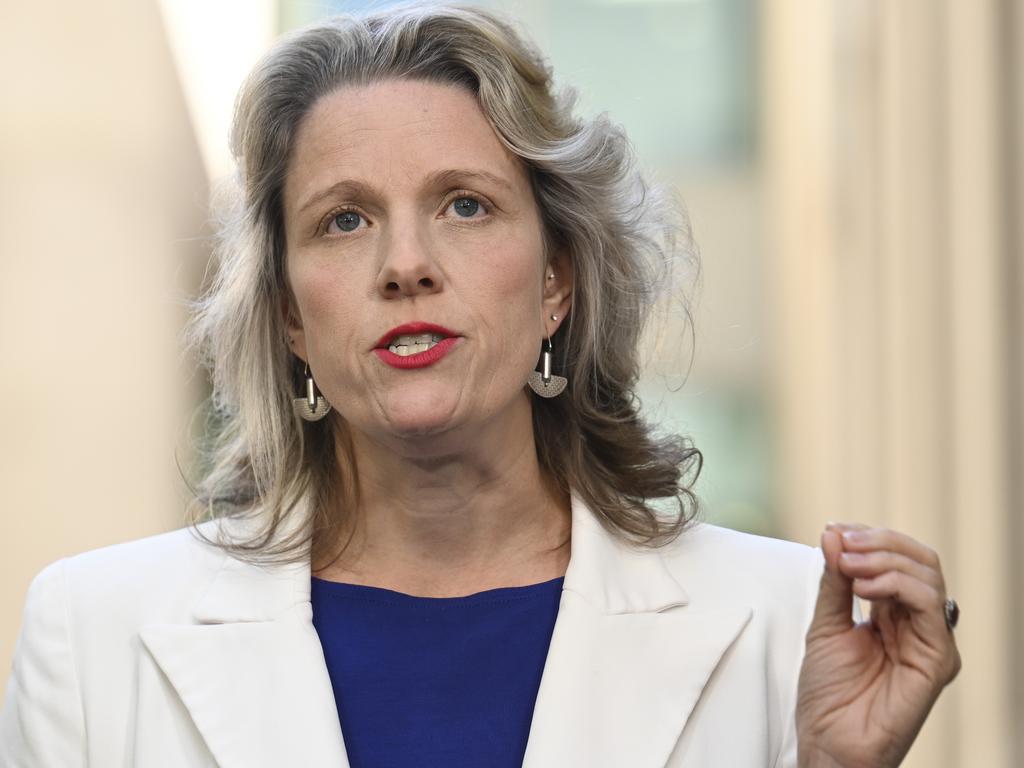‘We need to boost our MPs’ security’, says Mike Pezzullo
Former Home Affairs secretary Mike Pezzullo has called for a review into protective security arrangements amid growing concerns about political violence and threats to MPs in Australia.

Former Home Affairs secretary Mike Pezzullo has called for a review into protective security arrangements amid growing concerns about political violence and threats to MPs in Australia, as the Albanese government warned democracy was under attack.
Speaking after the attempted assassination of Donald Trump and the recent vandalism of electorate offices by pro-Palestine protesters, Mr Pezzullo said there had not been a comprehensive review of protective security in Australia since Justice Robert Hope’s “groundbreaking review of 1979” after the Hilton bombing of 1978.
While security and counter-terrorism arrangements had been examined after key events such as 9/11, the Bali bombings and the Martin Place siege, Mr Pezzullo said a broad review was needed to update the protective security framework “in light of what has transpired in the 45 years since”.
In a speech to the Museum of Australian Democracy on Monday evening, Home Affairs Minister Clare O’Neil said the spread of misinformation and disinformation, rise of new media platforms, threat of foreign interference and declining social cohesion had all emerged as security threats.
“Denying access to government services, terrorising politicians and their staff, painting symbols of terrorism in public spaces, smashing windows, setting buildings alight – these are the measures of autocrats, despots and tyrants; they have no place in our democracy,” Ms O’Neil said.

“Many democratic countries are becoming less democratic. Like a virus, populists are replicating at an exponential rate. New strains of nationalism are emerging around the world. They are personalising political power, strangling free speech, attacking diversity and adopting ‘strongman’ authoritarian measures — all in the name of “saving the soul of the nation. It seems like the democratic project is backsliding – not only in newer, less-robust democracies but also in democracy’s heartland.”
Ms O’Neil was launching the Strengthening Democracy report which was commissioned by Labor in December 2022 to identify practical steps to safeguard Australia’s democratic system.
Mr Pezzullo told The Australian a new “Hope review” could specifically examine the “rising risk of political violence, including the risk of assassination; the protective security implications of increasing violent extremism; the implications for the protection of VIPs, parliamentarians and major event security; (and) the roles and responsibilities of commonwealth and other authorities.”
It should also examine the “protective security implications of social media – for instance, the hyper-acceleration of violent extremist messaging, and the protective security implications of disinformation and misinformation, which will increasingly inspire violent acts at a scale and at a pace that has never been seen before.”
Another key issue was whether the “split of relevant protective security responsibilities between the Department of Home Affairs and the Attorney-General’s Department is optimal or whether better integration of commonwealth functions is warranted”.
Ms O’Neil said Australia should be integral to a global “revitalisation of democracy”, and argued that “every generation needs to discover how to nurture and protect their democracy”.
“We need to work together to inoculate democracy against emerging threats. We need collective action, not only from governments but from society as a whole,” she said.
“The project of democratic renewal can’t be led by one person, one task force, or one government. It needs the expertise of our communities and businesses, our universities and think tanks, our charities and philanthropies.”
Ms O’Neil warned against Australia becoming an “island of democracy in a sea of autocracy”.
Former prime minister Tony Abbott, who was headbutted in Hobart in 2017, told The Australian there was “no doubt that social media and the 24/7 news cycle” had “produced more polarisation and fragmentation”.
“Too often disagreement is seen as a moral failure not just a difference of opinion,” Mr Abbott said. “Still, we aren’t nearly as bad as the US, and they have a very different gun culture.
“I don’t think that our politics has become more dangerous – just more unforgiving,” he said.
Anthony Albanese conceded on Monday that the assassination attempt on Mr Trump did make him consider his own safety, arguing it was a “great thing” in Australia that politicians, including the prime minister, could “wander about events and … walk safely”.
“It’s important that democracy be cherished,” he said. “It is our great asset and we need to look for unity wherever we can, look for respectful disagreement.”
The Prime Minister also took aim at the actions of pro-Palestine protesters who had last month vandalised, smashed the windows and firebombed the office of Labor MP Josh Burns in St Kilda.
“The intimidation that’s occurred has not been good,” he told ABC radio.
Victoria police said there were “no updates and investigations remain ongoing” into the attacks on MPs’ electorate offices.
A review of security arrangements at Parliament House is also expected following a security breach on July 4 when pro-Palestinian protesters managed to bypass security, scale the building and unfurl anti-war banners from above the public entrance.
Sources close to the Speaker said there was a firm intention to implement the recommendations in the review – which is being conducted by the AFP – sooner rather than later, although it had not yet been completed.
The review is examining the July 4 breach as well as general security arrangements at the building, including access at the ministerial, Senate and House of Representative entrances.
Opposition home affairs spokesman James Paterson told ABC radio there were “some troubling signs that there are trends towards using violent means in Australia to try and intimidate parliamentarians and their staff.”
“And we cannot allow that to take hold here,” he said.





To join the conversation, please log in. Don't have an account? Register
Join the conversation, you are commenting as Logout